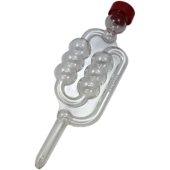
 1
1





 2
2




"The rule of no realm is mine. But all worthy things that are in peril as the world now stands, these are my care. And for my part, I shall not wholly fail in my task if anything that passes through this night can still grow fairer or bear fruit and flower again in days to come. For I too am a steward. Did you not know?" Gandolf












 1
1




 )
) 



Long balcony garden in the green Basque Country










Medicinal herbs, kitchen herbs, perennial edibles and berries: https://mountainherbs.net/ grown in the Blue Mountains, Australia
















Ask me about food.
How Permies.com Works (lots of useful links)





Medicinal herbs, kitchen herbs, perennial edibles and berries: https://mountainherbs.net/ grown in the Blue Mountains, Australia









|
I'm so happy! And I wish to make this tiny ad happy too:
Learn Permaculture through a little hard work
https://wheaton-labs.com/bootcamp
|




